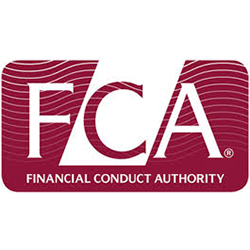Compliance
UK Regulator Reviews Politically Exposed Persons Regime

Recent controversies about banks' and financial services firms' "de-banking" a former political leader, and problems encountered by others, have prompted an outcry and demand for reform.
The UK’s Financial
Conduct Authority is reviewing how banks and other firms
apply rules for politically exposed persons (PEPs) – prompted by
the storm of controversy caused
by Coutts recently de-banking Nigel
Farage, and other episodes.
The FCA said that although it can’t change laws on PEPs, its
review – due to be complete by the end of June 2024 – will
consider how firms apply the definition of PEPs to individuals;
conduct “proportionate risk assessments of UK PEPs, their family
members and known close associates”; apply enhanced due diligence
and monitoring “proportionately” and in line with risk;
effectively communicate with PEP clients; and keep PEP
controls under review.
The PEP system, introduced in a number of countries to foil money
laundering, corruption and other offences, has expanded in the UK
and elsewhere as threats have multiplied. At the same time,
sanctions imposed on Russia and other nations – and heavy fines
on banks for lax controls – have encouraged lenders to take a
tight approach. The Farage/Coutts case, while not necessarily
directly about the former UKIP leader’s political status, raised
concerns that the PEP system was getting out of hand. Other
figures, such as the son of former UK Chancellor of the
Exchequer, Nigel Lawson, have struggled to open accounts for
relatives. Even the current Chancellor Jeremy Hunt reportedly
had a problem. (See commentaries on these topics here,
here
and here.)
“These rules follow international standards and are designed to
keep the financial system clean, free from corruption and guard
against financial crime. It’s important that they are implemented
proportionately and don’t create unnecessary barriers for public
servants and their families. We have already persuaded some firms
to improve their approach and we will use this review to identify
if we need to provide further guidance to firms,” Sarah
Pritchard, executive director of markets at the FCA,
said.
The FCA said financial firms must conduct extra checks on
political figures, their families and close associates. More than
200 countries and jurisdictions have signed up to the standards
set by the Financial Action Task Force – the group of countries
that focus on AML and related matters.
“However, if rules are applied inappropriately by firms, then
individuals may find themselves excluded from products or
services through no fault of their own,” the FCA said in its
statement.
“The application of PEP risk assessments is only part of the
wider collective drive to combat financial crime in the City. A
review, with that goal, is beneficial to the City," Richard
Burger, partner in the investigations group at WilmerHale and a
former investigative lawyer and prosecutor with the FSA
(predecessor to the FCA), said.
The definition of a PEP derives from the international standards
issued by the Financial Action Taskforce, the FCA said.
The regulator’s review of the PEP system is separate to its data
request on bank account closures, which will report back initial
findings later in September.
Beyond the PEP issue, a cause of the outcry over the Farage case
was that the political and media figure’s views jarred against
the bank’s views on areas such as LGBTQ rights, Brexit and
climate change. The event raised questions on why the
opinions of a client should have any bearing on whether they were
eligible to have an account in the first place. UK Prime
Minister Rishi Sunak warned that the episode highlighted a threat
to free speech.